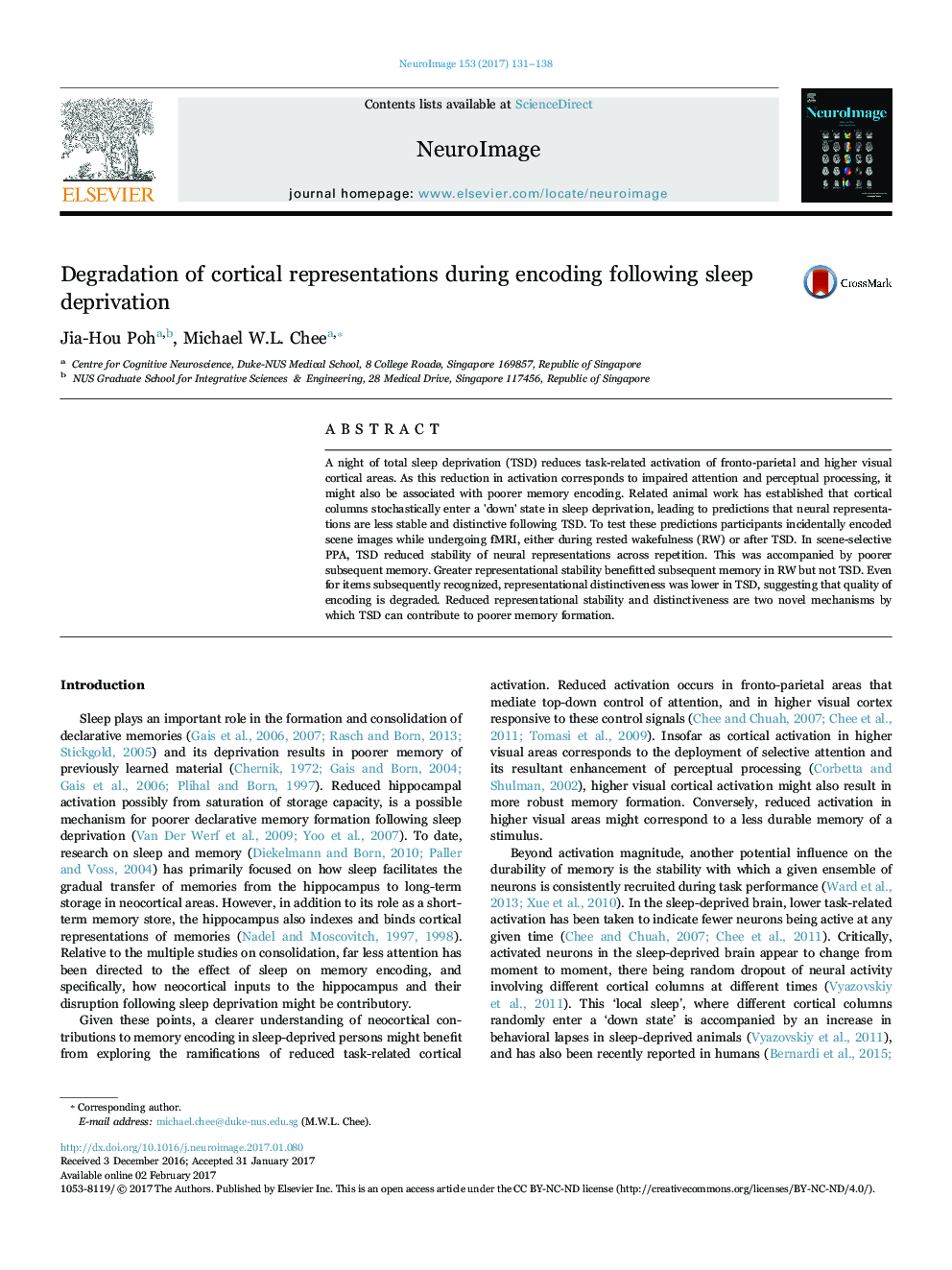| Article ID | Journal | Published Year | Pages | File Type |
|---|---|---|---|---|
| 5631088 | NeuroImage | 2017 | 8 Pages |
â¢Sleep deprivation (TSD) can degrade the encoding of memoranda.â¢Degraded neocortical representation of pictures can be uncovered using MVPA.â¢The stability of neural representation across picture repetition was lowered in TSD.â¢Item-specific neural distinctiveness was also reduced following TSD.â¢These are two mechanisms by which inputs to the hippocampus can be degraded in TSD.
A night of total sleep deprivation (TSD) reduces task-related activation of fronto-parietal and higher visual cortical areas. As this reduction in activation corresponds to impaired attention and perceptual processing, it might also be associated with poorer memory encoding. Related animal work has established that cortical columns stochastically enter a 'down' state in sleep deprivation, leading to predictions that neural representations are less stable and distinctive following TSD. To test these predictions participants incidentally encoded scene images while undergoing fMRI, either during rested wakefulness (RW) or after TSD. In scene-selective PPA, TSD reduced stability of neural representations across repetition. This was accompanied by poorer subsequent memory. Greater representational stability benefitted subsequent memory in RW but not TSD. Even for items subsequently recognized, representational distinctiveness was lower in TSD, suggesting that quality of encoding is degraded. Reduced representational stability and distinctiveness are two novel mechanisms by which TSD can contribute to poorer memory formation.
